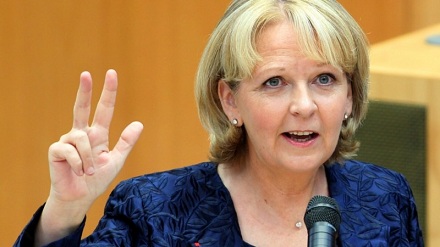Voters in Germany’s largest state, North Rhine-Westphalia, go to the polls on Sunday, May 13, to elect a new Landtag, the state parliament of NRW.![]()
Politics in NRW, home to nearly 18 million Germans, is often seen as a barometer of German federal politics — it falls in the one-time industrial heartland of Germany, and the state lack neither the leftward tilt of the former East Germany nor the rightward tilt of Bavaria in Germany’s south. State elections in NRW in 1995 foreshadowed the federal election of Gerhard Schröder, just as NRW elections in 2005 foreshadowed the success of current German chancellor Angela Merkel.
Barring any major surprises, however, the current government headed by a “Red-Green” coalition of the Sozialdemokratische Partei Deutschlands (the Social Democratic Party) and Die Grünen (the Green Party) under NRW premier Hannelore Kraft will improve on its success from the 2010 NRW legislative election.
The SPD has consistently led polls with around 37% to 40% of the vote to just 30% to 33% for the Christlich Demokratische Union (Christian Democratic Union) of Merkel and Norbert Röttgen, who is running against Kraft in the NRW election and who also serves as the federal deputy of the CDU and the environmental minister in Merkel’s government in Berlin. Early elections were called in March, after the Freie Demokratische Partei (Free Democrats) caused the government’s budget to fail — rather than abstaining from the vote, it opposed the budget, thereby resulting in snap elections.
Given that the CDU has never been expected to win the state election on Sunday, it is unlikely to spur any crisis for Merkel at the federal level, but that doesn’t mean the election won’t have an impact on federal elections — with a German general election on the horizon in 2013, here are four key questions about the NRW election, each of which could ripple through federal politics: Continue reading Four questions for Sunday’s North Rhine-Westphalia state elections
